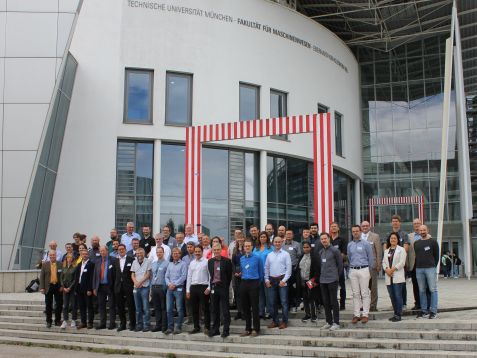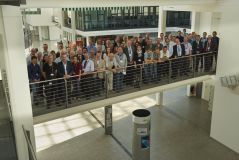MLZ is a cooperation between:
 > Technische Universität München
> Technische Universität München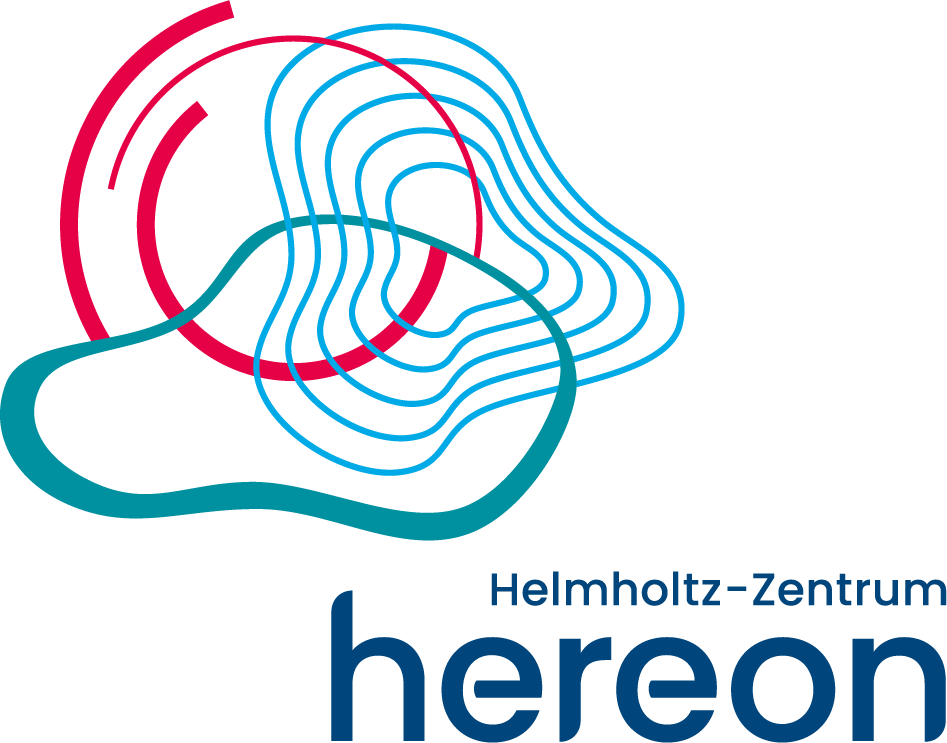 > Helmholtz-Zentrum Hereon
> Helmholtz-Zentrum Hereon
 > Forschungszentrum Jülich
> Forschungszentrum Jülich
MLZ is a member of:
 > LENS
> LENS > ERF-AISBL
> ERF-AISBL
MLZ on social media:

MLZ (eng)
Lichtenbergstr.1
85748 Garching
21.09.2022
8th TUM Expert Forum: A platform for industrial applications
On 08.09.2022, the Expert Committee 101 Non-Destructive Testing of the VDI Society Materials Engineering met for another platform meeting for application-oriented networking. Ten presentations under the umbrella term “Automation and Machine Learning in Nondestructive Testing” were held. A poster exhibition and a concluding panel discussion provided the opportunity for lively exchange, networking and discussion for the approximately 50 participants.
Dr. Ralph Gilles, physicist, industry coordinator of the Maier-Leibnitz Zentrum (MLZ) and head of the working group ‘Advanced Materials’ at the MLZ opened the event. The expert forum on 08.09.2022 was the first after a four-year break: due to Corona, the biennial event had been cancelled in 2020, making the joy of the gathering of experts from research and industry all the better. The forum focused on the innovative use of robots and the application of machine learning and artificial intelligence (AI) for non-destructive testing.
A highlight was the plenary lecture by Dr. Norman Uhlmann, head of the X-ray Technology Development Center, entitled “Cognitive sensor systems – decisions instead of data.” His idea: product quality assurance is triggered directly by the manufacturing machine. The latter has an automated control system (artificial intelligence) that detects defects and reports them to the cognitive inspection system. This could avoid 100% inspection and provide feedback in the further development of the manufacturing machine.
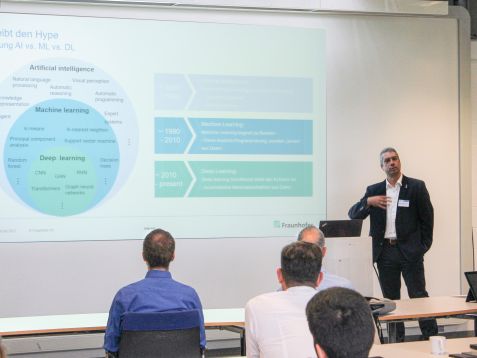
Dr. Norman Uhlmann during his lecture on "Cognitive sensor systems - decisions instead of measurement data" © FRM II / TUM
Could Artificial intelligence prove to be a key technology?
According to Dr. Norman Uhlmann, yes, because the resulting high-level automation and information extraction promises to optimize the manufacturing process. But what exactly is artificial intelligence? One definition is: a program, with the ability to learn and the reasoning of humans. Machine learning forms a special part of AI. This refers to algorithms that learn without being explicitly programmed. A deepening of this is “deep learning,” an area of machine learning that describes artificial neural networks that are fed by huge amounts of data, from which they learn and adapt.
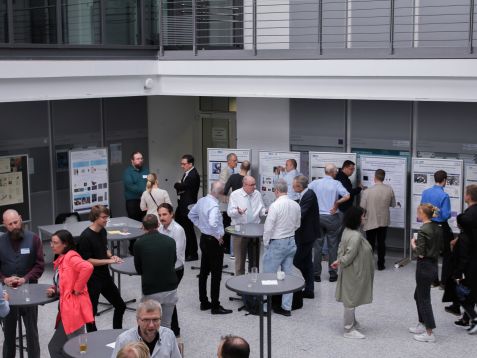
The event offered many opportunities for lively exchange among experts from research and industry. © FRM II / TUM
How do you stay up-to-date as a company?
Dr. Norman Uhlmann introduced the closing panel discussion with the question: If you could solve something classically, should you solve it classically? A wide range of opinions triggered lively discussion among the participants. A central question was how to manage to be always up-to-date as a company. One of the answers given was a good exchange between experts and companies, especially among medium-sized companies. In Reinland-Pfalz, a transfer initiative has been created for this purpose and three knowledge transfer ambassadors have been appointed. Additionally, the TUM Expert Forum also offers an excellent opportunity for this.
Non-destructive testing on the neutron beam
Non-destructive testing at the Forschungs-Neutronenquelle (FRM II) is of great importance to industry, as Dr. Bernd R. Müller from the Federal Institute for Materials Research and Testing emphasizes: “We are already looking forward to when neutrons flow again at FRM II and we can carry out our measurements on the STRESS-SPEC instrument”. The participants were able to see this and many other instruments during a guided tour through the FRM II after the event.
More information:
- Non-destructive testing of components and materials at the Heinz Maier-Leibnitz Zentrum
- The 8th TUM Expert Forum:Automation and Machine Learning in Nondestructive Testing
- Information for industrial users at FRM II
Contact for industrial users at FRM II:
Dr. habil. Ralph Gilles
Phone: +49 (0)89 289-14665
E-Mail: ralph.gilles@frm2.tum.de
Related News
MLZ is a cooperation between:
 > Technische Universität München
> Technische Universität München > Helmholtz-Zentrum Hereon
> Helmholtz-Zentrum Hereon
 > Forschungszentrum Jülich
> Forschungszentrum Jülich
MLZ is a member of:
 > LENS
> LENS > ERF-AISBL
> ERF-AISBL
MLZ on social media:



